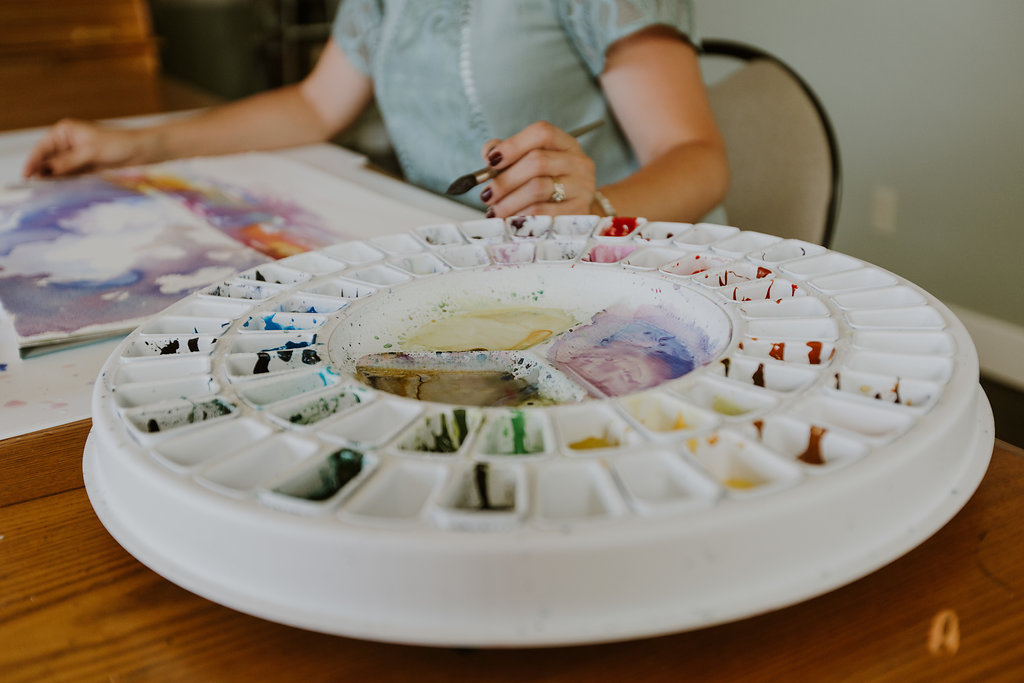The Value of Taking an Artistic Sabbatical
My painting discipline has never looked very disciplined. I have dozens of unfinished paintings stacked in my studio. When I’m painting, I’m often working on several paintings during one session, and they are usually very different from each other. My mind is a frustrating place for creativity to live, because while my heart thrills to spontaneous colour and movement, my brain is always looking for process and structure, and I have to try to overcome this tendency and trick it into stepping aside and letting my subconscious play.

One of the best places for the subconscious to emerge is outside the studio. Just as many creatives keep a notebook beside the bed for the thoughts that spring free just before we drift off to sleep, our minds can often work out solutions and next steps for our paintings when we are seemingly “at rest” from painting.
I’ve found the benefit in taking a longer “sabbath” from painting as well. When my children were small, I had very little time to paint. I estimated that I could complete about three good paintings a year. It was so encouraging when I did pick up my paintbrush and once I was able to start painting again, my skills hadn’t disappeared, and my mind was more clear on what I wanted to paint and how I wanted to paint it. There was an efficiency and clarity that came from having time and space to consider my “what next” in painting. The time I spent scrapbooking my toddler’s photographs helped build my skills in composition and colour harmony as well, which was an unexpected bonus.

Because I receive so many emails from artists who stopped painting for decades out of discouragement, fear and defeat, I’m hesitant to write about the topic of taking time off from painting. When you leave the studio, it’s so easy to replace creative time with something else, and before you know it, weeks have passed without picking up a paintbrush. Choose positive goals for your sabbatical to help you regain your vision, evaluate your goals and create strategies for success. If I’ve spent a season working on my landscape painting skills and am feeling stalled in my progress, I will choose to move back to a subject that is more within my comfort zone, so I can enjoy some successes in my painting. I might continue to study artists who have mastered different styles of landscape painting, without picking up a brush in that topic myself. If I'm not painting because of time constraints, travel or just LIFE, I rest in the knowledge that the distance from the brush can be just what is needed. Distractions fade away, but passions remain.

Giving yourself time and space to grow and process is a way of valuing and trusting yourself. Urgency is often motivated by fear; fear that you might lose what skill you possess, or be unable to reproduce your results if you delay. You are better than that!

